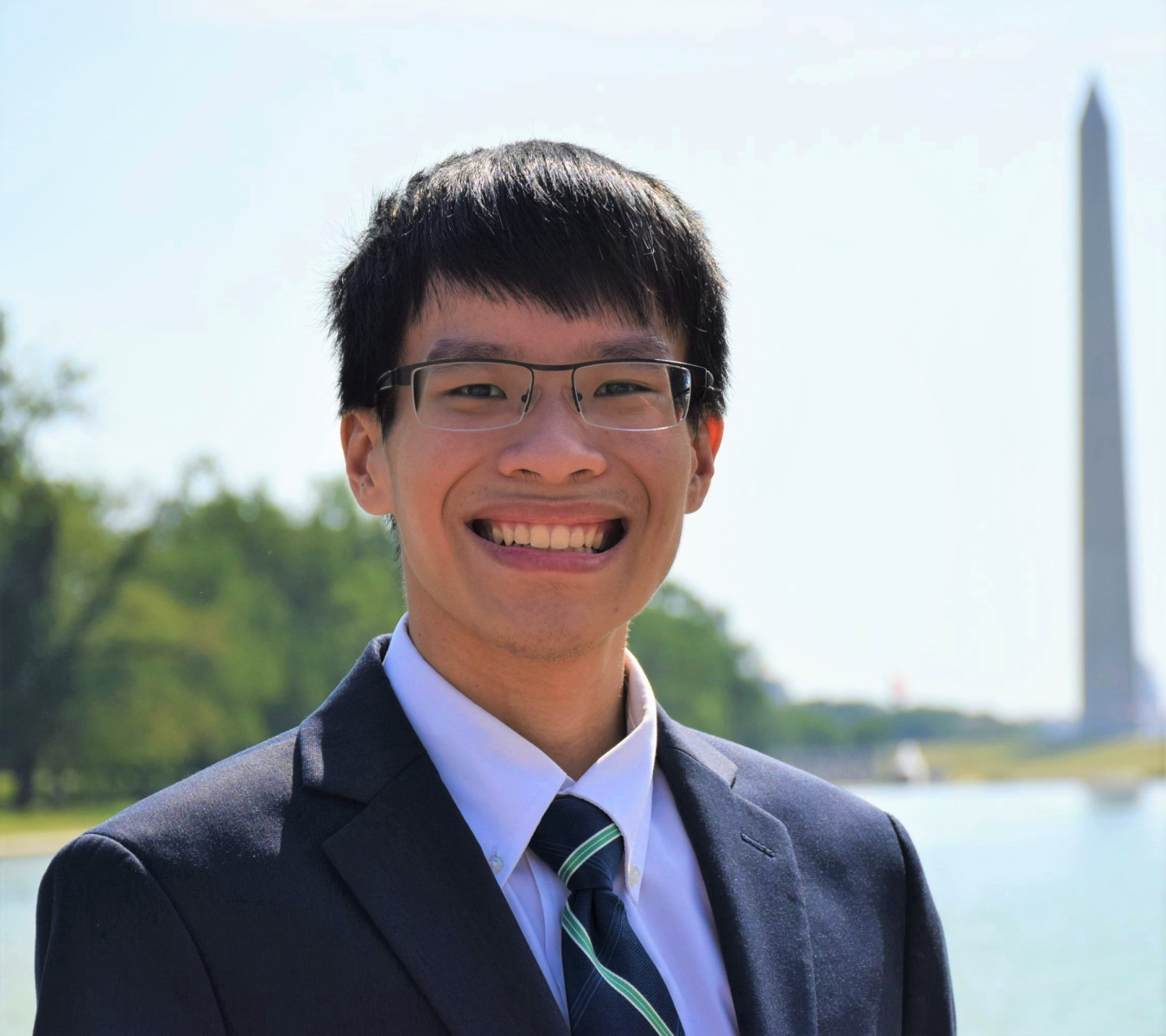Caleb Yip shares his story as an immigrant from Hong Kong who attended Georgetown, became an NNSA Graduate Fellow, and will now join NNSA’s workforce.
National Nuclear Security Administration
May 24, 2023
What is your role here at NNSA? How does it align to our mission?
I am an NGFP fellow serving on the Deputy Administrator’s Action Group, and help support Defense Programs senior leadership on concurrence requests and strategic messaging, including talking points, Congressional Questions for the Record, and press inquiries.
What is your cultural background? How has your personal background/experience shaped you and your approach to work?
I was born in Hong Kong and immigrated to Pittsburgh, PA, at age 8. My parents sacrificed a comfortable life in Hong Kong so that my siblings and I could pursue a better future in the United States, and that shaped my motivation to dedicate my career to public service. I want to ensure that others get the same opportunities that I did, and I’m proud that my work at NNSA is helping to safeguard that American dream.
What did you study in school and how did it impact you personally and professionally?
I studied international politics and security studies at Georgetown. The courses I took gave me a strong foundation to engage with nuclear security and deterrence issues, but more importantly, they allowed me to meet great people like Solomon Greene, an alumnus of the program who introduced me to the NGFP fellowship and encouraged me to apply.
What led you to a career in nuclear security?
My first internship was at the State Department’s Bureau of International Security and Nonproliferation. The summer that I was there, the United States was finalizing its withdrawal from the Intermediate Range Nuclear Forces Treaty, even as Iran was beginning to ramp up its enrichment activities again. Those issues sparked a greater interest in nuclear weapons and international security and spurred me to pursue a graduate degree in security studies and military operations.
What is the best part about your job?
The best part of the job is being able to see how all the different pieces of the nuclear security enterprise fit together. Getting a sense of how different Defense Programs’ program offices work together to advance the modernization program has been incredibly instructive and has helped me refine my own career goals.
What is your proudest accomplishment while working at NNSA?
Early on in my fellowship, I took on the task of updating some graphics that showed the current and future U.S. nuclear deterrent, as well as our ongoing modernization programs. That graphic, along with our program’s command brief that I helped update, was used by Dr. Marv Adams to give a Defense Programs overview at the 2023 Nuclear Deterrence Summit. It was a gratifying moment to sit in the audience and realize that my work was being presented to a room of industry executives and senior officials.
Tell us a little about yourself – a fun fact, a personal hobby, and/or accolades achievements received.
In undergrad, I had the opportunity to travel to Kyrgyzstan for eleven days to teach English and international affairs to Kyrgyz high school students. While I was there, one of our local partners invited us to their house for dinner, where they offered to slaughter a goat in our honor. We respectfully declined since our flight back to the United States was the next day, and we didn’t think TSA would take kindly to us transporting goat meat with us, but it was certainly an experience I will never forget!
Do you have any highlights from your time supporting NNSA? (notable projects, achievements, accolades/awards, etc)
I had the chance to brief on behalf of my team at the April Integrated Planning Group at the Savannah River Site, and it was a great experience to be able to meet others from the Nuclear Security Enterprise and to explain the work that our office does in interfacing with Congress and the public. As I was briefing, I also realized just how much I’ve already learned, even though I’ve only been at NNSA for less than a year.
What advice would you have for anyone interested in a career in nuclear security? (Can also be about a career in STEM or public service.)
I would strongly encourage people to consider public service and nuclear security as a career. There are few careers out there where you feel like the work that you do truly makes a difference, and I certainly feel that sense of purpose and mission here at NNSA.
Why do think diversity and inclusion is important to your profession?
Diversity and inclusion are critical because of how important the work is that we do. As public servants, we should strive to be representative of the country that we serve, and part of that is to ensure that our workplace is welcoming and inclusive of people from all groups.

